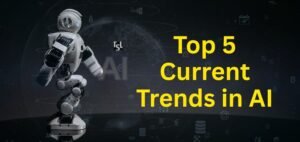With the speed of today’s transforming digital economy accelerating, data has emerged as the catalyst for innovation and decision-making. Whether predictive analytics or real-time data, data is powering all aspects of modern business and government. As companies compete to unlock data potential, the ability to gain actionable insight from big and varied sets of data is redefining competitive advantage in every sector. In order to thrive in this world, private and public sector organizations will be forced to invest in analytics capability and develop data-natured cultures that can match relentless technological advancements.
Data’s Emergence as a Strategic Asset
The role of data has shifted from that of an operation aftereffect to one of a strategic asset on the forefront of innovation and creation. Organizations no longer think of data as an instrument of hindsight analysis but rather as an engine of power in support of human action. With the advent of technologies such as artificial intelligence, machine learning, and big data platforms, organizations can today obtain richer patterns and insights that inform product development, customer experience optimization, and speeding up operation efficiency. Organizations with better data strategy capability will more likely be the ones that have invested in cutting-edge infrastructure, i.e., cloud computing and real-time analytics platforms, in order to achieve higher speed and scalability of insights.
With technological innovation, cultural adoption of data by every tier of an organization also needs to occur. Decision-making is becoming democratized with the employee being empowered by self-service analytics and cross-functional collaboration. This allows organizations to respond quickly to changes within the marketplace and also alterations in customer needs. Data-driven enterprises are better at customer satisfaction, revenue growth, and innovation speed. Therefore, building data maturity is not a tech effort but a complete-overhaul transformation that impacts leadership, culture, and corporate values.
Driving Innovation with Data Democratization
One of the most groundbreaking trends in the last decade has been data democratization—the practice of giving access to data to everyone within an organization, technical or otherwise. By eliminating bottlenecks and minimizing dependence on centralized data personnel, democratization facilitates faster, better-informed decision-making at all levels. Tools like business intelligence software and low-code environments liberate employees to find and chart out data on their own. This access shortens the innovation cycle, enabling cross-functional teams to experiment with ideas, validate assumptions, and uncover new business opportunities that would not be apparent in a more siloed organization.
But democratization must also be supported by good data governance so that there exists alignment, security, and accuracy. The greater the number of users who are exposed to data, the greater the imperative on the side of the organizations to implement usage rules related to purpose, define data quality specifications, and provide training to establish analytical capability. Privacy-preserving technologies must be implemented, as well, and standards such as GDPR and CCPA. Executed effectively, data democratization not only builds transparency and trust but also a culture of exploration and continuous optimization. It allows teams to release the full creative power of the data and innovate beyond their dreams.
Empowering the Workforce for a Data-Driven Future
Finally, with the increasing demand for data literacy catching up with organizations, organizations need to invest in reskilling the workforce to succeed in the era of data. Technical professionals such as engineers and data scientists are still needed, but increasingly today are “data translators”–individuals who understand advanced analytics and possess the ability to communicate in the language of business strategy. Critical thinking training, data storytelling, and statistical thinking are the most important ways to build this skillset. Additionally, integrating data literacy into daily work makes all employees across all departments a value-add to data-driven initiatives.
Schools also need to contribute towards preparing the future generation for the challenges of the digital economy. Data science, machine learning, and ethics in data usage are increasingly becoming a must-have in all areas of study. Public-private partnerships can accelerate talent development even more through internships, certification, and mentorship opportunities that align with industry requirements. Most essentially, a future workforce is one that maintains the capability of learning across its life cycle, adapting with new technology, and being prepared for the strategic and ethical challenges of information. Investment in human capital is not less important than investment in machinery in making the data-dominated future really achieve their best potential.
Conclusion
The information age has come, revolutionizing our lifestyle, work, and innovation. By embracing data as a strategic enabler, making it easy to democratize, and empowering the workforce with the power to work with complex insights, organizations can release transformational potential. While the way forward is filled with governance, privacy, and integration problems, a reflective and visionary path can make them good forces. As economies and societies evolve, it is those who bet on information by intent and by precision that will construct more flexible, more varied, smarter futures.
Read Also : Disney Stock Price: What’s Causing Its Rise and Fall


